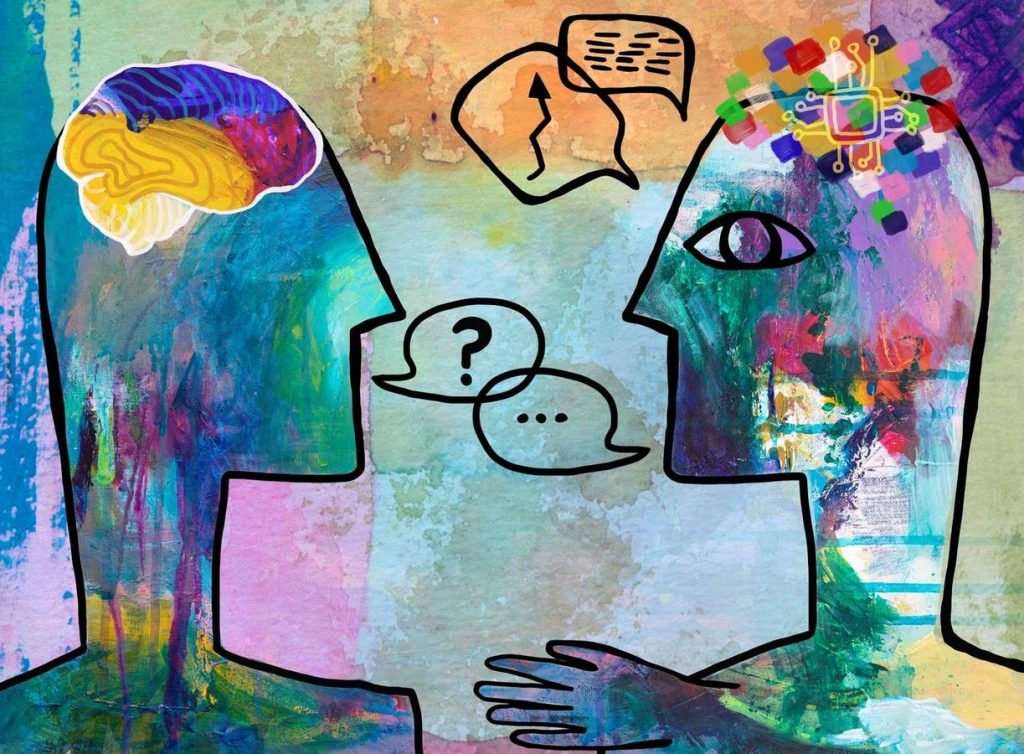A phenomenon of “AI-formization” is emerging, a term I coined to describe the subtle yet profound impact that AI algorithms are having on culture and creativity.
This trend manifests as a homogenization effect, where AI-driven systems, designed to optimize efficiency and cater to widespread preferences, inadvertently lead to a uniformity in artistic expression, cultural experiences and creative content as highlighted in a report from the University of Toronto.
The essence of the issue lies in this paradox: while AI has the potential to enrich and diversify our cultural landscape, it is also steering us toward a more monolithic and less diverse world.
AI has revolutionized the way products are recommended and advertised, tailoring user experiences to unprecedented levels of personalization, predicting and influencing consumer preferences with remarkable accuracy.
However, this technology often reinforces existing consumer behaviors rather than expanding them. By continuously presenting products and ads based on past interactions and preferences, these systems create a feedback loop that narrows the scope of exposure to new choices. This self-reinforcing cycle can lead to a homogenization of consumer experiences, where exposure to diverse products is limited, and the discovery of new, innovative or niche items is reduced.
AI has radically pushed the boundaries in artistic creation by being used to generate art pieces by learning from vast databases of classical and contemporary artworks, or to compose music by analyzing patterns in popular music genres.
While these technological advances are remarkable, they also bear a critical downside, which is the tendency of AI to favor prevailing trends. By predominantly learning from and replicating widely accepted and popular styles, these algorithms often overlook less mainstream, unconventional art forms, leading to a homogenization of creative outputs. This pattern not only diminishes the diversity of styles and expressions but also risks creating an echo chamber of similar ideas.
The integration of AI in the literary world, spanning from book recommendations to content curation and even writing, is also transforming how we interact with literature. AI algorithms, powering platforms like online bookstores and reading apps, analyze user data to suggest books, tailor content feeds and, in some cases, even assist in writing stories or articles.
Although these tools offer convenience, they inadvertently narrow the literary landscape. By prioritizing titles and genres that align with established user preferences or widespread trends, AI-driven recommendations often exclude diverse literary voices and unconventional genres, limiting readers’ exposure to the full spectrum of narrative possibilities.
The increasing reliance on AI to guide our choices and preferences brings with it a concerning trend: the loss of exceptionalism and the marginalization of outliers.
There are beings endowed with a talent that far exceeds the average.
For sure, AI has shown capabilities in combinational creativity, which involves combining familiar ideas, and exploratory creativity, which is about generating new ideas within existing structures and styles.
However, AI struggles with transformational creativity, which requires generating ideas beyond existing frameworks to create something entirely new.
If some claim that AI won’t replace humans — but humans with AI will replace humans without AI, it must be acknowledged that the validity of such a perspective is limited. Humans with AI will not replace exceptional humans without AI — But the homogenizing effects of AI creating a form of monolithic space will make both the unconventional and creation outside the norms more difficult to access for the world, and the ones who “think different” even more necessary, even more special.
This makes the issue known as the minority data representation a significant concern in the field of AI, particularly in machine learning and deep learning systems.
AI systems predominantly trained on mainstream data not only impoverishes our cultural and intellectual landscapes but also diminishes the potential for breakthrough ideas and creations that often come from the fringes rather than the mainstream.
By tending to amplify and replicate what is already popular or considered “average,” they overlook the unique and the unconventional perspectives, often vital for innovation and progress in society.
The challenge is to ensure that AI models are trained on datasets that are not just focused on the peak of the Gaussian curve but also adequately represent the tails, ensuring diversity and reducing biases of average. Techniques like data rebalancing and augmentation for minority groups aim to address this skewness, making the AI models more reflective of the real-world diversity.
So why does addressing the “AI-formization” during the course of AI design and its implementation matter? Not simply for the sake of valuing diversity for its own sake.
Rather, it’s about ensuring that other exceptional creations, ideas and pieces of abnormal human intelligence will continue to reach each and every one of us, breaking through the wall of normalization and homogenization artificially created by algorithms.
The integrity of the nuanced and often unpredictable nature of human creativity is at stake, with the risk of being overshadowed and dulled by AI-generated content that leans heavily toward the average, reducing the probabilities of being exposed to the exceptional, diminishing the occurrences of serendipity, thereby potentially stifling the emergence of groundbreaking outcomes of any kind.
Artificial Intelligence may well be the technology that makes us realize the importance of our own.
Read the full article here






